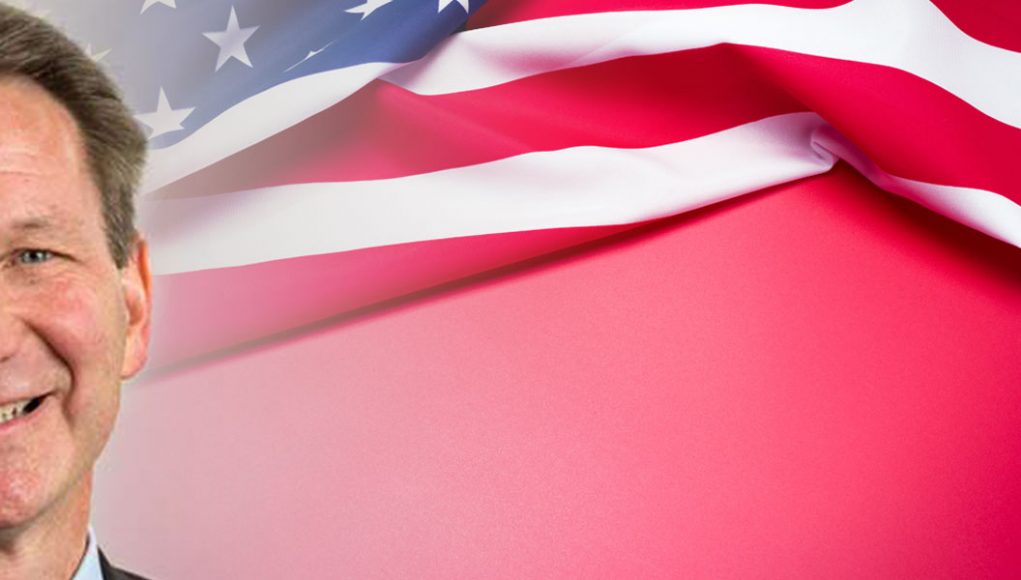The Food and Drug Administration (FDA) announced an extension on the comment period for the drafted compliance policy for deemed tobacco products which include e-cigarettes. The draft policy is one of the final acts of former FDA commissioner Scott Gottlieb who single-handedly positioned the Trump administration as a “hard on tobacco” presidency. However, the extension did not come from the desk of Gottlieb. It came from the now acting FDA commissioner, Ned Sharpless, and the team that he inherited.
Having observed the vaping realms of Twitter much this week, I found that many are torn on whether Sharpless will ease up on regulating vapes and e-cigarettes. Many are optimistic, claiming that the extension of the draft policy comment period is a good sign. While it is a relatively small victory, vapers should remain wary of Sharpless.
“That Cancer guy”
Norman Sharpless (Ned is his nickname) joined the FDA from the National Cancer Institute (NCI). At NCI, Sharpless was the federal government’s resident expert on all issues related to cancer treatment and prevention. Upon the announcement of his accession to acting commissioner, U.S. Secretary of Health and Human Services Alex Azar characterized Sharpless as a man with deep scientific knowledge and experience. Alternatively, in Azar’s words, “deep scientific background and expertise [that] will make him a strong leader for FDA.”
“There will be no let up in the agency’s focus, from ongoing efforts on drug approvals and combating the opioid crisis to modernizing food safety and addressing the rapid rise in youth use of e-cigarettes,” Azar added.
While the role of FDA commissioner carries a profound amount of power, Sharpless is entering a position with superiors that expect him to ensure that the programs Gottlieb instituted during his tenure persist. Based on these expectations and pure common sense, vapers should expect Sharpless to be just as aggressive as Gottlieb was on e-cigarettes and vapes.
“Sharpless has been supportive of Gottlieb’s efforts to ban vaping products,” Julie Gunlock wrote to me in an email. She is the director of the Center for Progress and Innovation at the conservative-leaning Independent Women’s Forum. Gunlock added: “He’s also said publicly that more research is needed on e-cigarettes in order to figure out where vaping fits into public health, so it’s unlikely we’ll see any changes in the regulatory posture at the FDA.”
Barring the political criticisms and the ideological factions involved in the vaping debate, Gunlock appears to be on the same page as I am: concerned and skeptical.
The “Ned” effect
Over six months ago, Sharpless appeared in an interview with broadcast news indicating a relatively unsatisfying and unclear position on lower-risk nicotine products like e-cigarettes. For the CBS This Morning podcast, Sharpless told host David Agus that he was not sure about the national policy on vaping products.
“Nobody is certain yet what the national policy on e-cigarettes should be regarding tobacco control,” he said in the interview. “It’s going to be years more before we have a clear answer as to what our recommendations ought to be.” While Sharpless does accurately note that much is still being discovered about the long term effects of vaping, such a statement suggests that he has no specific position regarding the existing research that already reveals lower risk compared to combustibles. This was indeed not the intention, surely, but entire industries and industrial segments must base their next strategic decisions on his opinion about alternative nicotine products.
Concern over Sharpless holding his office can also be attributed to how tobacco stocks reacted to the announcement of his temporary appointment. At Vaping Post, we are proud to maintain a position of opposition against big tobacco companies involved in the vaping space; however, concern for overall industry health should be noted given the extensive influx of vaping and e-cigarette products from large tobacco companies currently in the market.
When Sharpless was offered the position at FDA, giants like Altria and Philip Morris International (PMI) saw sharp drops on March 12. These firms have since recovered and are performing as expected by analysts with some even recommending investment into these stocks despite FDA crackdowns. While the large tobacco companies might perform well and experience occasional down and upticks, these firms and their performance on the stock market does not accurately reflect the performance of the “tobacco-free” vape industry.
If Sharpless is anything like his predecessor on policy approaches, he will preside over the full implementation of the updated pre-market approval policies mandated by the Obama-era Tobacco Control Act. After the FDA released the draft compliance policy (mentioned at the beginning of this editorial) in March, the draft policy revealed the agency’s intention to overhaul pre-market approval enforcement. Small vape firms fear a bleak future due to the millions of dollars it will take to navigate the FDA’s pre-market approval process.
The draft policy intends “to encourage [the] more prompt filing of premarket submissions for certain ENDS products” and “to focus the [FDA’s] enforcement resources where there is a greater threat to public health.”
Given that Gottlieb transitioned out and Sharpless took over during this critical policy debate, the future intentions of the FDA will likely remain the same from before the tenure of the new commissioner.
Just talk to us
All the vaping industry can do now is continue to cooperate with the FDA, employ more self-regulation, and remind regulators of the potential public health benefits of e-cigarettes and vapes.
My only recommendation for Sharpless is that he provides the vaping consumer and the tobacco-tied and independent vape industries a full position statement on his beliefs related to vaping. Until then, Sharpless is a stranger to the lay-vaper who is potentially more volatile than Gottlieb.








